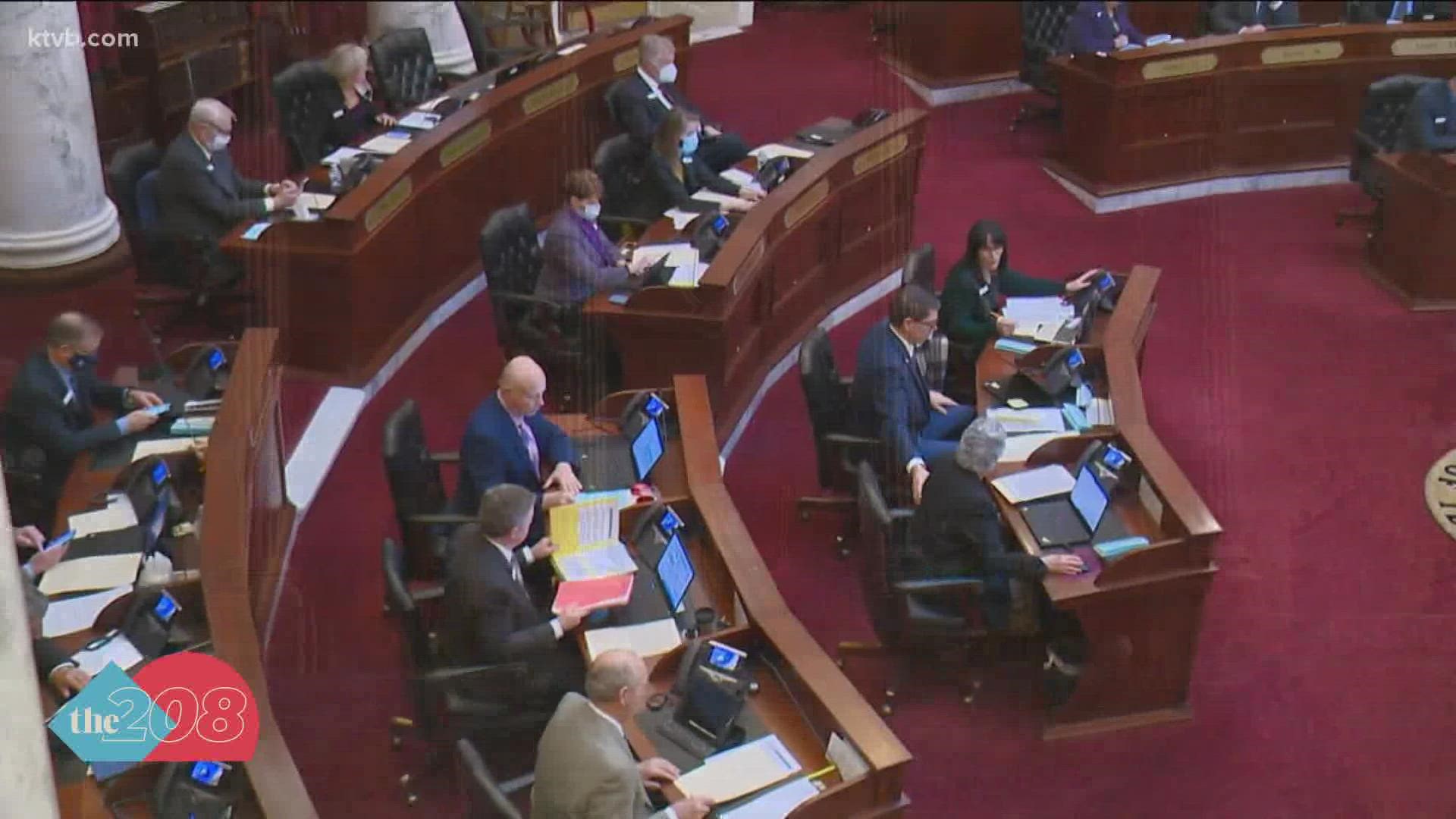BOISE, Idaho — In May, the Idaho Senate adjourned for the year, but the Idaho House did not. Now the House is planning to come back to take up the ethics investigation into Rep. Priscilla Giddings. House members are also looking at legislation to push back against the Biden administration's vaccine mandates.
With the senate adjourned "sine die" for the year, is that body locked out from returning and being a part of legislation in November, before the 2022 regular session is set to begin? Senate President Pro Tempore Chuck Winder says no.
"Sine die" is a Latin phrase meaning "without day." Before dropping the gavel on the end of a session, House and Senate leaders customarily declare their chambers "adjourned sine die" once members approve a motion to adjourn.
“The attorney general has ruled that we didn’t really Sine Die because from a constitutional standpoint. The constitution contemplates both the House and the Senate agreeing to Sine Die. Since the House recessed, our Sine Die is null and void. So, we are still in a regular session,” Winder said.
Winder is referring to an opinion that the Idaho Attorney General’s Office released earlier this year. It’s possible that opinion could be challenged in court, but for now it is wait and see. The opinion does wrap up with the note, “It is essential to note that the scenario currently presented is unique and unprecedented in Idaho. The Legislature's decision to pursue this course of action causes risk which could result in a reviewing court concluding differently.”
For now, though, here is the plan for the Senate:
“Our members can come back voluntarily, they can wait and see what the house does and then the house could force us to come back if they wanted to actually do some legislation or they could Sine Die and then we could come back and Sine Die and it would be over,” Winder said.
Winder says either way, the Senate will need to come back and formally adjourn based on the AG’s opinion. There are members of the Senate open to passing something before the end of the year in response to the Biden vaccine mandate, issued in an executive action. However, Winder says that is complicated by the fact that the Biden Administration has not announced all the rules involved in the executive action.
However, there are other avenues to address the President's action. Winder explains one option.
“We are trying to figure out a way to establish standing to bring a lawsuit against the executive order on the contractors and employers," Winder said. "I don’t think there is anything we can do about federal workers, federal employees, but there are some things I think we can do to protect our citizens from what we feel is an arbitrary and capricious overstep by the President.”
When lawmakers return, they are returning to regular session rules with no limits on the topics they can discuss. Some have raised concerns about a runaway session that could drag on for weeks. Winder said he believes lawmakers are focused on the mandate issue.
“There are people that are talking about tax bills, education bills, those are more appropriately done when we’ve got time during a regular session, and I don’t think anybody wants to come back and just keep going on 'til the end of the year trying to get this stuff done,” Winder said. “We are only two months away (from the 2022 session) now, and I think everybody feels like it will be a whole lot better end result if we wait 'til January and February to take on the major issues.”
Join 'The 208' conversation:
- Text us at (208) 321-5614
- E-mail us at the208@ktvb.com
- Join our The 208 Facebook group: https://www.facebook.com/groups/the208KTVB/
- Follow us on Twitter: @the208KTVB or tweet #the208 and #SoIdaho
- Follow us on Instagram: @the208KTVB
- Bookmark our landing page: /the-208
- And we also turn each episode into a podcast on Podbean
- Still reading this list? We're on YouTube, too:

